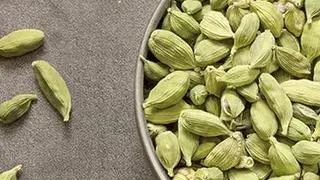The municipal garbage processed by composting plants normally contains 50 per cent moisture (which evaporates) and 30-35 per cent non-biodegradable solids from plastics, leather and glass to sand, silt and stones (which mostly go back to the dumpsite).
It is only the balance 15-20 per cent that goes for composting, after the raw garbage is first screened by trommels (heavy-duty rotary sieves) to segregate material below 120-mm size.
The composting itself takes about five weeks, during which inoculants (bacterial cultures) are sprayed and moisture levels maintained at 50-60 per cent to speed up decomposition. Since the process generates heat (auto-oxidation) that can result in garbage fires, the composting material is turned over frequently using excavators.
Once the composting is over, the material is further screened by trommels to below 35 mm, then 16 mm and finally to four mm. This is followed by magnetic and gravity separation to remove ferrous metals, sand and silt. The end-product is, then, bagged and sold as organic manure.
Apart from municipal garbage, press-mud from sugar mills and spent-wash from distilleries have also emerged as major sources of organic manure for fertiliser companies.
Press-mud is the residual cake from filtered cane juice that cannot be used for further crystallisation into sugar. This filter-cake is sprayed with spent-wash and microbial inoculants, with the resultant bio-compost containing more than 15 per cent organic carbon.
Alternatively, the spent-wash from distilleries can be mixed with charcoal and burnt to run boilers. The ash remaining after this contains 12-14 per cent potash.
Coromandel International, which is the most aggressive player in the organic manures segment, plans total sales of 2.5 lakh tonnes (lt) for 2011-12. This includes 1.1 lt each of MSW-based compost and spent-wash treated press-mud, and the rest from low-grade potash from spent-wash, poultry manure, press-mud sprayed with rock phosphate, and other variants.






Comments
Comments have to be in English, and in full sentences. They cannot be abusive or personal. Please abide by our community guidelines for posting your comments.
We have migrated to a new commenting platform. If you are already a registered user of TheHindu Businessline and logged in, you may continue to engage with our articles. If you do not have an account please register and login to post comments. Users can access their older comments by logging into their accounts on Vuukle.